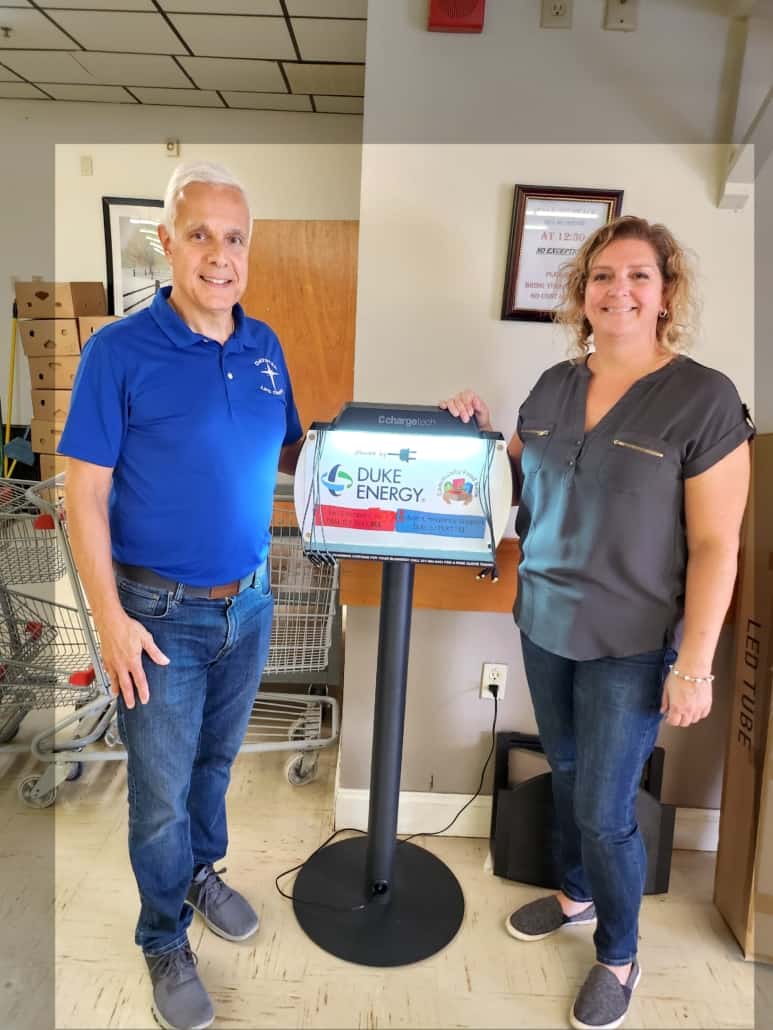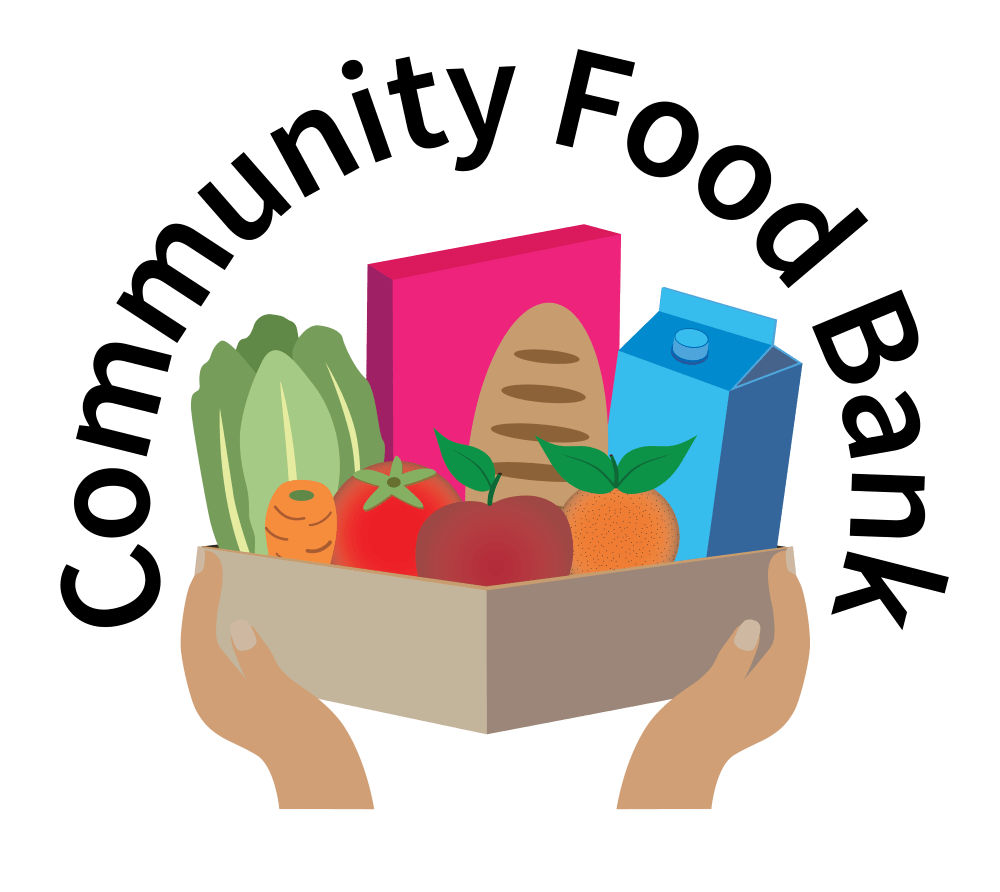Recharging Lives
Grant from Duke Energy Allows CFB to Participate in Exciting Pilot Program

The Community Food Bank (CFB) is excited about being able to provide mobile phone charging stations throughout the community. They are installing the first of many they hope to be able to provide thanks to a grant partnership with Duke Energy. In an innovative partnership, CFB and Duke Energy have teamed up to offer these safe, accessible charging stations to help ensure individuals in need can connect with family, friends, and resources to help elevate their situations.
According to Barbara Sprague, CFB Executive Director and CEO, the agency is placing charging stations at various pantry locations throughout Citrus and Hernando Counties including Daystar Life Center’s temporary location at 9020 W. Atlas Drive in Homosassa and the Citrus Cold Weather Shelter at 5113 S. Suncoast Blvd in Homosassa.
“Individuals in need can acquire free mobile phones and minutes through a variety of social service programs,” explains Sprague. “The problem is they have no place to charge these devices, which are often used to help them keep in touch with family, friends, resources, and even their workplaces, as there are many homeless individuals who hold down jobs.”
Sprague says that individuals who are homeless often times must trespass on private property to find charging outlets.
“Sometimes a business or individual will welcome them and give them permission to charge their mobile phone, but that is a rare exception,” says Sprague. “The new charging stations we are placing at safe places throughout the community will make access to charging their devices more accessible, easier, and better guided.”
According to Sprague, the charging stations will also give staff at local food pantries and homeless shelters the opportunity to assist individuals with navigating resources and even encourage clients to reach out to family and friends in efforts to help them get stabilized.
“We often take for granted just how much we depend on our mobile phones,” concludes Sprague, “For individuals in need, these devices are a lifeline to resources, job opportunities, and the connection to family and friends they need to help them get back on their feet.”


